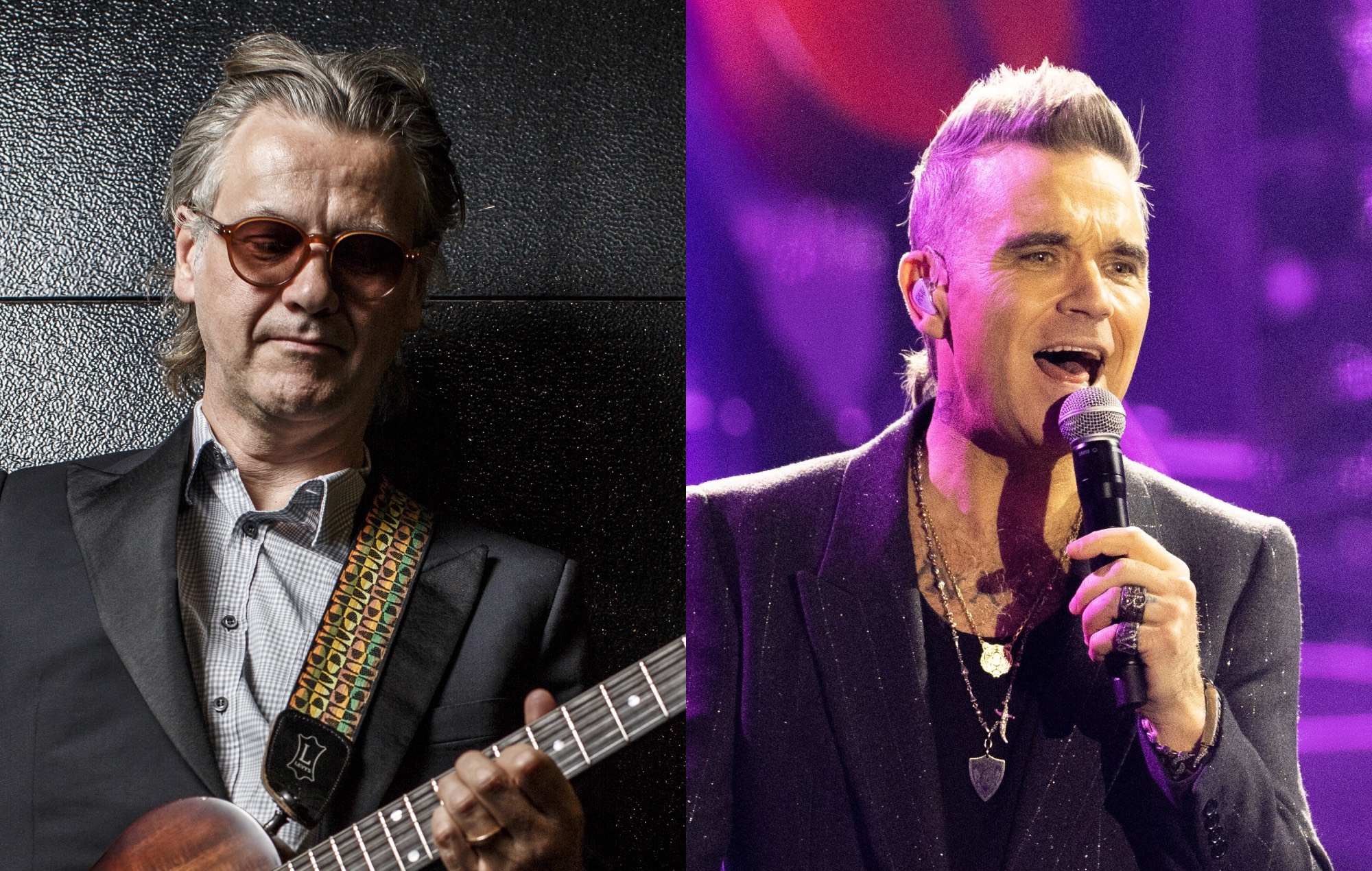
Robbie Williams’ former songwriting partner Guy Chambers has opened up about his relationship with Williams in a new interview, where he described the pop star as having “a self-destructive side”.
In a new interview with The Times, Chambers spoke about struggling with Williams’ addictions in the ’90s saying “he was the first person I worked with long-term who was in full-blown addiction, and I wasn’t prepared for that. It was very difficult.”
He claimed: “We’d wait three days for him to turn up at a studio. People would go around pubs trying to find him. He would turn up drunk. We’d go out and he would disappear on some mission. That happened in Robbie world.”
Chambers reflected on the biggest hits they wrote together including ‘Angels’ and ‘Let Me Entertain You’, but how they split as a song-writing duo in 2002 when Williams’ addiction issues reportedly continued and “trust issues” led to a breakdown of their relationship.
Chambers went on to reflect on how they reunited a decade later but problems re-emerged when he claims Williams became addicted to pills. “I’d be behind him thinking he could keel over. He could die on stage,” Chambers told The Times.
He added: “There were teams trying to help him, and still [are], but if he’s got it in his head to do something, he won’t listen. He has a self-destructive side.”
[embedded content]
Williams, whose solo career began after being a member of boy-band Take That, recently brought out a new documentary on Netflix, offering an insight into his career, relationships, and struggles with mental health.
The four-part documentary, titled Robbie Williams, has been described by NME as “a persuasive account of the gulf that can occur between wealth and happiness, a simple sentiment that can be difficult to really feel.”
In the documentary, Williams opened up about leaving Take That in 1995 when “in the middle of a nervous breakdown” – something he had previously spoken about to the BBC last year.
Elsewhere in the documentary, Williams revealed that releasing ‘Rudebox’ was the “biggest regret” of his career.






